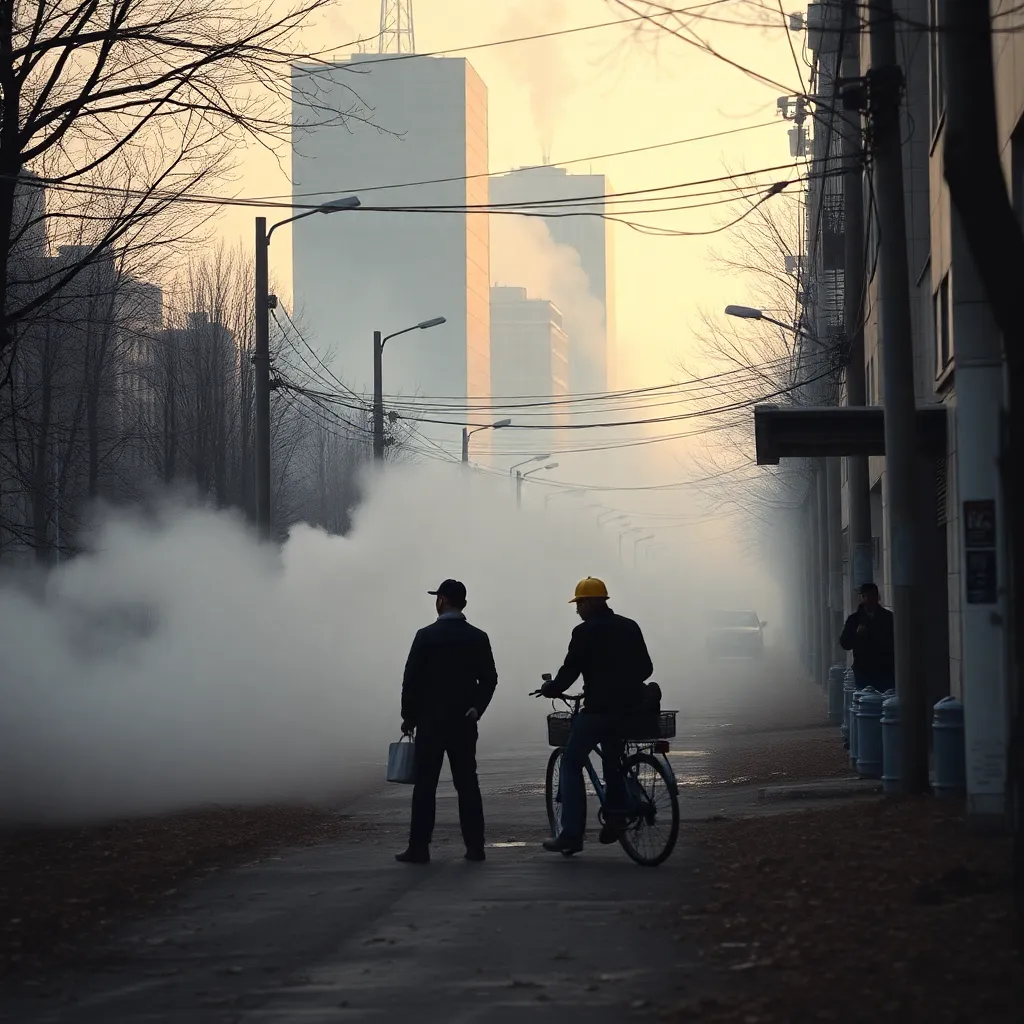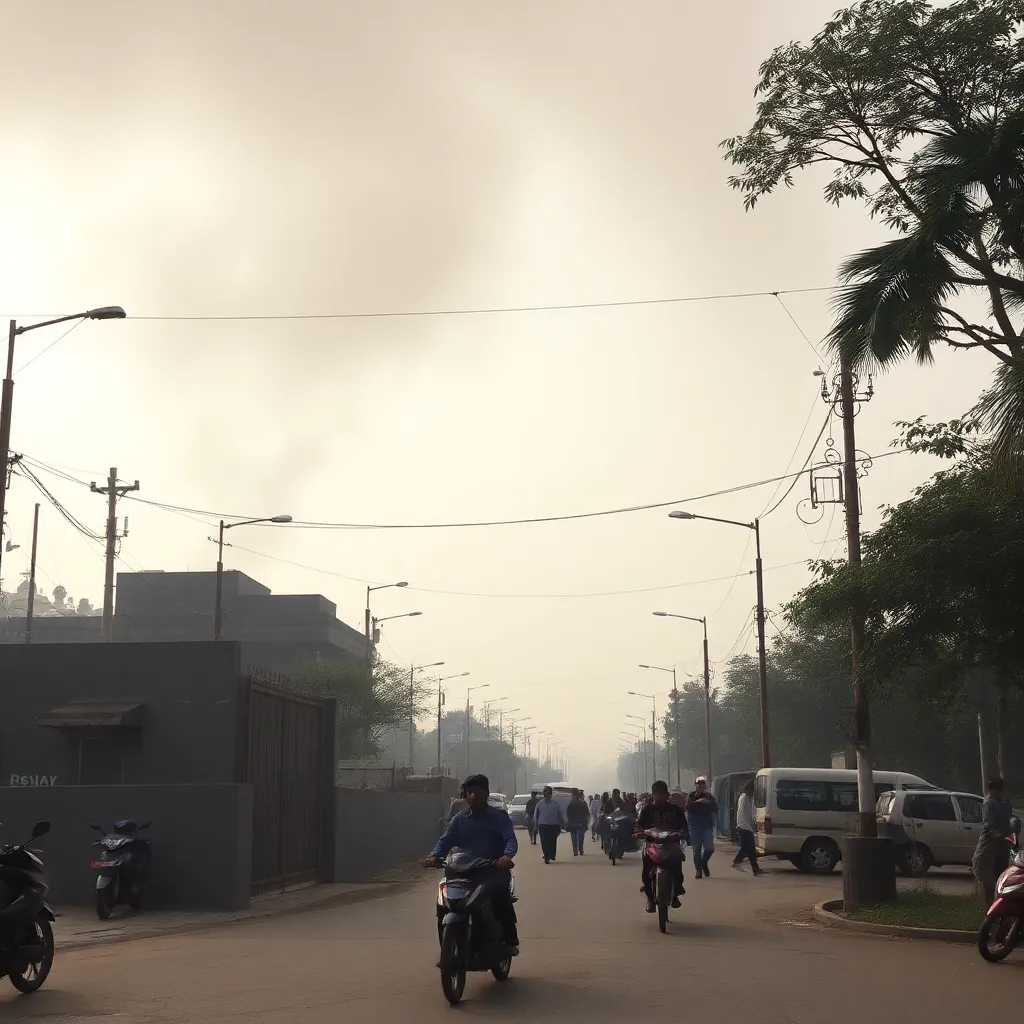
15-Nov-2024 , Updated on 11/16/2024 11:32:07 PM
Delhi Pollution: Highlighting the recent updates
New Delhi, being the capital of India, has always maintained its historical importance and cultural and lively ambience. There is also a grey area, which literally overshadows this city—literally. Pollution in Delhi has become very acute, and if no action is taken soon, Delhi will not be a healthy or safe city for anyone to live in, particularly the children and the elderly.
Pollution: The Current State of Pollution
The latest data shows that Delhi has become one of the most polluted cities in the world. The CPCB has noted that the AQI regularly breaches the 400 mark, defined as “severe” by the World Health Organisation. This means that the air is not just bad for you; it kills people and puts other lives at risk. When people breathe in, they are likely to develop respiratory illnesses, cardiovascular diseases, and other respiratory diseases, among others.
This then is a wake-up call to the government.
The situation has become dire, and it is about time that the government did something about it. If the authorities can carry on ignoring this problem, Delhi will end up being a place where living conditions are unbearable. Just picture a city where children are sent to bed and can barely get out to play; a city where the elderly are not free to move around or they suffocate; a city where breathing itself becomes a problem. This is not an option; it is practically around the corner for most organisations.
Delhi has some serious problems with pollution, which are being addressed now by the Indian government, especially regarding agricultural burning and industrial waste.
- Regulations and Bans: Currently, the government has put measures in place to control agricultural fires, such as the prohibition of crop residue burning. A considerable number of farmers are forced to burn the stubble as they cannot afford to use other forms of disposing of the waste.
- Subsidies for Alternatives: Plans are still being encouraged for the government to avail subsidies for machinery that can help tackle agricultural waste issues without the burning process, but due to financial complications, WES of such farmers hence cannot invest in such technologies. Unfortunately, these options are not yet financially feasible, and the government has to increase its sponsorship.
- Industrial Waste Management: The government has also been called upon to increase its efforts and come up with even tighter standards for the disposal of industrial waste. Most factories emit pollutants directly into the atmosphere without pre-treatment, and the emissions are substantially contributing to the increment of pollution in Delhi.
- Lack of Coordination: Most importantly, there is a severe deficiency in terms of cooperation between different levels of government: central, state, and local. Division of powers in this way affects the efficiency of policy adoption and implementation at large as well as enforcement.
- Political Will: In the end, specifically, political will shall have to be invoked and scaled up to confront these challenges more directly. Failing this, the pollution problem will simply continue to worsen and make Delhi a progressively more unwholesome city in which to dwell.

The Economic Impact
Let’s talk numbers. Firstly, if the pollution level increases further, people will begin to cover their faces, and the number of hospital beds required will extend. Costs for these necessary items will rise, of course, putting added financial pressure on the families. Consequently, other expenses, such as spending on health, will be incurred higher because many people will have health complications from the effects of pollution. This is not just a problem of the environment but of the economy, which is a problem for everybody.
Measures Taken by Residents Before Disaster Strikes
As the government sits back waiting to make a move, people need to protect themselves and their families from the ravaging virus. Here are some steps you can take:
- Stay Informed: Do not lose sight of the daily AQI reports. There are live applications and websites available through which one can make use of the air quality and accordingly plan your day.
- Limit Outdoor Activities: In particular, when bad weather occurs, that is, when there is increased air pollution, it is recommended to spend as little time outdoors as possible. However, when you have to go outside, minimise the time you spend outside and do not engage in physical activities.
- Use Masks: Wear quality masks that effectively prevent penetration of unwanted and damaging particulate matter into your body system. For general, common use outdoors, particularly on days of high air pollution, only the N95 or N99 masks are advised.
- Air Purifiers: Home air purifiers may be employed in converting the indoor air quality for the better. It can also aid with avoiding the intake of other dangerous substances in the air.
- Stay Hydrated: Drinking a lot of water is also important because this way your body is rid of toxins that are present within it. Essentially, it is a healthy practice in that it is easy to make part of your daily routine.
- Advocate for Change: Participate in anti-pollution groups or activities within the society. The more people come out and give their testimonials, the more heat we continue to mount on the government and force it to act.
Conclusion: Time for Action
There isn’t a single environmental problem in Delhi, but it’s a full-fledged health hazard that requires urgent attention. The government seems not to care, and the implication is that we stand to lose this beautiful city to the point of being uninhabitable. Now the citizens will be able to boo and shout for what they rightfully deserve. Whether it is asthma and respiratory disease, heart failure, cancer, or stroke, we need clean air, and we need it now!
Let's not sit in the bullpen until the cows are high, as the saying goes. The time for action is now!

Student
hey there! i am a student currently pursuing my bachelors with a keen interest in writing., I am fueled by a deep love for storytelling and a flair for creating captivating narratives. Armed with a passion for language and a keen eye for detail, I strive to craft compelling copy that leaves a lasting impact.
Join Our Newsletter
Subscribe to our newsletter to receive emails about new views posts, releases and updates.
Copyright 2010 - 2026 MindStick Software Pvt. Ltd. All Rights Reserved Privacy Policy | Terms & Conditions | Cookie Policy